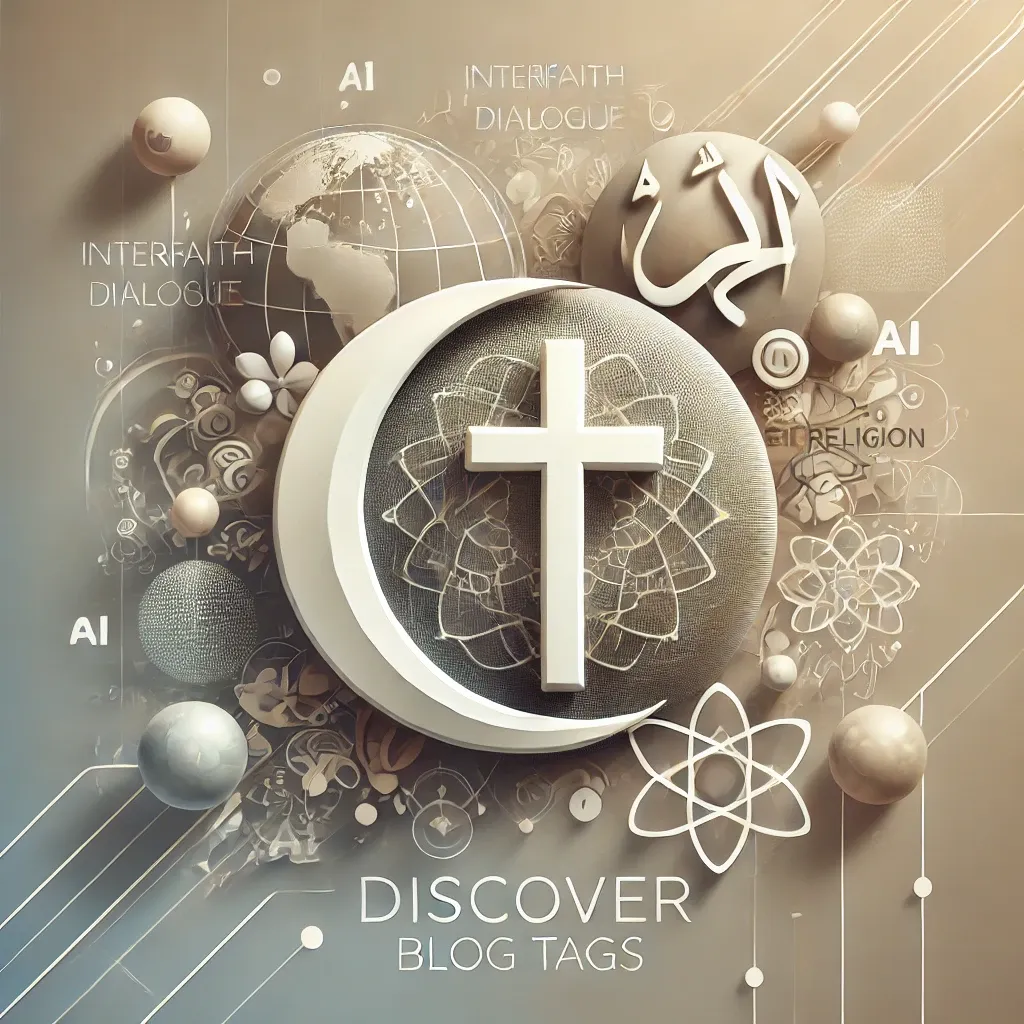

By Dr. Tim Orr
In an era defined by radical individualism and self-autonomy, many Christians may unknowingly adopt an approach to their faith that isolates their relationship with God from the life of the church. This mindset, often fostered by cultural currents, diminishes the biblical understanding of community and the church's essential nature in a believer's life. Far from being a mere institution or a gathering of like-minded people, the church is central to the identity of a Christian. However, in today’s world, alternative definitions of identity—offered by the culture—present us with conflicting and sometimes destructive paths that attempt to steal our true sense of self in Christ. In this article, we will explore the theological foundations of the church as a core of Christian identity while also confronting how the world tempts us to adopt false identities. This subtle but powerful force is a form of spiritual identity theft, which we must resist to live out the fullness of who we are in Christ.
The Trinitarian Foundation: The Church as a Reflection of God’s Nature
At the heart of Christian belief is the doctrine of the Trinity—God as Father, Son, and Holy Spirit—this understanding of God as inherently relational has profound implications for our understanding of the church. Just as God exists in a loving community of three persons, He created humanity to reflect this relational nature. When God created humanity in His image (Genesis 1:27), He created us to reflect this communal nature. He declared in Genesis 2:18, "It is not good for man to be alone." Humans are made for relationships—not just with God but with one another.
The church, therefore, is not an afterthought or a human invention; it is the divinely ordained community in which believers experience the life of God together. Jesus prayed in John 17:21 for His followers to "be one, just as you, Father, are in me, and I in you." The unity within the church reflects the unity within the Trinity itself. The church is the tangible expression of this divine community on earth. To reject or marginalize the church is to reject a key element of God’s design for humanity and the reflection of His triune nature.
The Body of Christ: Interconnectedness and Mutual Dependency
From this Trinitarian foundation, we move to the metaphor of the church as the Body of Christ. In 1 Corinthians 12, the apostle Paul vividly describes believers as different parts of one body, each with unique roles yet all dependent on one another. He writes, "Just as a body, though one, has many parts, but all its many parts form one body, so it is with Christ" (1 Corinthians 12:12).
This metaphor underscores the interconnectedness of Christians. Just as the human body cannot function without an arm, a leg, or even a finger, the church cannot function if its members live independently. Each person’s spiritual gifts and presence are necessary for the church to thrive. This means that we are spiritually incomplete without the church. Being part of Christ’s body means recognizing our need for others and their need for us.
However, this interconnectedness comes with challenges. Many struggle with committing to a church, especially in a world that promotes independence. Some barriers include:
- Fear of vulnerability: Joining a church means letting others into your life, which can be uncomfortable. Many fear judgment or rejection when they are truly known.
- Mistrust of institutions: Particularly in a post-pandemic world, many have grown skeptical of large organizations, including the church. Scandals, leadership failures, and divisions can make people hesitant to commit.
- Cultural individualism: The idea that faith is a private, personal matter has gained traction recently. Many believe their relationship with God can thrive apart from any church community, but this belief contradicts the interconnectedness described in Scripture.
Spiritual Identity Theft: The World’s Alternative Identities
While Scripture presents the church as central to our identity in Christ, the world offers a range of alternative identities—attractive but ultimately shallow and false. This is a form of spiritual identity theft, where the culture attempts to define us by worldly standards rather than by God’s truth. Just as thieves try to steal financial or personal information, the world tries to steal our spiritual identity by convincing us to embrace counterfeit versions of ourselves. Here are some of the world’s most common alternative identities:
- Identity Based on Success and Achievement: Society often measures a person’s worth by their accomplishments. The world tells us that we are defined by what we do. If we succeed, we are valuable; if we fail, we are worthless. This performance-based identity leads to a cycle of striving and stress, where our identity becomes tied to external achievements rather than God's unchanging love.
- Identity Rooted in Materialism and Consumerism: Advertisements and social media constantly reinforce the idea that our value comes from what we own or consume. Whether it’s the latest technology, fashion, or lifestyle trends, materialism lures us into believing that our identity is tied to our possessions. Yet, no material wealth can fill the spiritual void only God can satisfy.
- Identity Tied to Appearance and Popularity: In a culture obsessed with image and approval, many people derive their self-worth from how they look or how many followers they have on social media. This identity is fragile, leading to insecurity and the endless pursuit of validation from others. When our identity is tied to appearance or popularity, we lose sight of our worth as beloved children of God.
- Identity Rooted in Individualism and Self-Expression: Modern culture encourages people to “be true to themselves” and create their own identity based on personal desires. While this sounds empowering, it often disconnects individuals from moral or spiritual grounding. This fluid and unstable identity offers no true anchor for life’s deeper questions.
- Identity Rooted in Political or Social Groupings: Many identify in political beliefs or social causes. While these may be important, they often become all-encompassing, reducing identity to one aspect of life. When political or social identities take precedence over our identity in Christ, it leads to division and an "us vs. them" mentality that distorts the unity found in the gospel.
Support Tim on Patreon
The Bride of Christ: A Covenant Relationship
To counteract these false identities, we must return to the biblical truth of who we are in Christ. Moving from the Body of Christ metaphor, we now turn to the church as the Bride of Christ. In Ephesians 5:25-27, Paul compares the relationship between Christ and the church to that of a husband and wife, noting that Christ "loved the church and gave himself up for her." This marital imagery emphasizes that the church is not a loose affiliation of individuals but a covenant community bound to Christ in love and fidelity.
In Revelation 19:7-9, the church is depicted as the bride adorned for her wedding to Christ. This vision points to God's eternal plan, where the church’s relationship with Christ is the culmination of history. Our participation in the church is more than just for the here and now—it is part of our preparation for eternity.
This covenant relationship between Christ and the church has profound implications for how we view our role within the church. As marriage requires commitment, sacrifice, and love, so does our relationship with the church. We are not called to be passive consumers of spiritual experiences but active participants in the life of God’s people.
The Church as a Family: Spiritual Kinship and Mutual Support
Another powerful metaphor for the church is that of a family. The New Testament often refers to believers as brothers and sisters in Christ. This reflects the reality that the church is a spiritual family where we experience the intimacy and belonging that comes from being adopted as children of God (Romans 8:15). In a world that often promotes isolation and self-sufficiency, the church offers a countercultural model of interdependence and mutual care.
In the early church, this family identity was lived out through acts of radical generosity and care. Acts 2:42-47 describes how believers shared their possessions and devoted themselves to one another’s well-being. Being part of the church means embracing this family identity—moving beyond a consumer mentality and committing to investing in the lives of others. This requires vulnerability, selflessness, and the willingness to give and receive.
The Church as a Pilgrim Community: On Mission Together
Finally, the church is a pilgrim community called to be on a mission for God’s kingdom. Peter writes that the church is "a chosen people, a royal priesthood, a holy nation" (1 Peter 2:9), set apart to proclaim the gospel and bear witness to God’s grace. This pilgrim identity reminds us that the church exists not for itself but for the world.
As a pilgrim community, the church constantly moves forward in its mission, even in the face of cultural opposition. However, the modern world presents challenges to this missional identity:
- Digital church: While online worship has provided a lifeline for many during the pandemic, it has also led to passive participation, lacking the relational depth of physical community.
- Spiritual individualism: The cultural belief that spirituality is private has led many to disengage from the church’s communal mission. Yet the Great Commission calls us to work together in advancing God’s kingdom.
Living Out Our Identity in the Church
Given the centrality of the church to our Christian identity and the competing narratives offered by the world, how do we reclaim and live out our true identity in Christ? Here are practical steps:
- Join a Local Church: Be part of a congregation where you can be known, loved, and held accountable. The local church is where you tangibly experience the benefits of belonging to the body of Christ.
- Participate in Worship and Service: Engage in the worship and work of the church. Use your gifts to serve others, contributing to the mission and ministry of the church.
- Commit to Spiritual Growth: Seek out discipleship, teaching, and fellowship opportunities. Spiritual growth happens within the community, where we sharpen and encourage one another.
- Embrace Accountability and Community: The church is where we hold one another accountable and encourage each other in the faith. Be willing to open your life to others and allow them to speak into your spiritual journey.
- Live on Mission: The church exists as a pilgrim community to share the gospel with the world. Find ways to engage in mission locally and globally, extending God’s kingdom through the church’s work.
Conclusion: Guarding Our True Identity in the Church
The church is a powerful reminder of who we truly are in Christ in a world that constantly offers false identities rooted in success, materialism, and individualism. We can resist the spiritual identity theft that distracts us from our true purpose by grounding our identity in the church—as the Body of Christ, the Bride of Christ, and the Family of God.
The church is essential to our identity as Christians. It is where we experience the fullness of our relationship with God and one another and live out our mission as ambassadors of Christ. Embracing the church as central to our identity is not just a theological truth but a path to freedom, purpose, and spiritual fulfillment.
As you consider your faith journey, ask yourself: How deeply are you connected to the church? Are you living out your identity in Christ in a way that reflects the church's relational, covenantal, and missional aspects? The answers to these questions will guide you toward a richer, fuller understanding of who you are and who you are called to be in Christ.
Tim Orr is a scholar, Evangelical minister, conference speaker, and interfaith consultant with over 30 years of experience in cross-cultural ministry. He holds six degrees, including a master’s in Islamic studies from the Islamic College in London. Tim taught Religious Studies for 15 years at Indiana University Columbus and is now a Congregations and Polarization Project research associate at the Center for the Study of Religion and American Culture at Indiana University Indianapolis. He has spoken at universities, including Oxford University, the University of Tehran, and mosques throughout the U.K. His research focuses on American Evangelicalism, Islamic antisemitism, and Islamic feminism, and he has published widely, including articles in Islamic peer-reviewed journals and three books.
Check out Dr. Orr's other articles.
 Dr. Tim Orr's BlogKevin Martinez
Dr. Tim Orr's BlogKevin Martinez
Check out Dr. Orr on YouTube
 YouTube
YouTube
Sign up for Dr. Tim Orr's Blog
Dr. Tim Orr isn't just your average academic—he's a passionate advocate for interreligious dialogue, a seasoned academic, and an ordained Evangelical minister with a unique vision.
No spam. Unsubscribe anytime.
